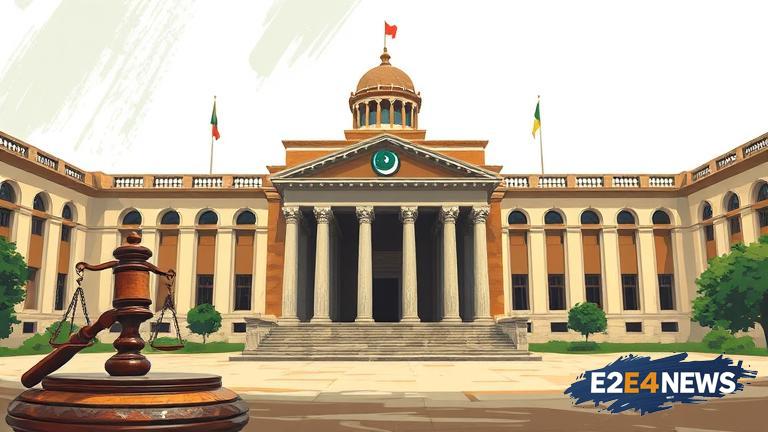Pakistan’s judicial system has been facing numerous challenges, including delays and inefficiencies, which have hindered reform efforts and affected the delivery of justice. The country’s courts are overwhelmed with a large backlog of cases, resulting in lengthy delays and frustration for litigants. The situation is further complicated by the lack of adequate resources, including insufficient funding, outdated infrastructure, and a shortage of judges and support staff. Despite efforts to reform the judicial system, progress has been slow, and the pace of change has been hindered by bureaucratic red tape and resistance to change. The government has introduced various initiatives aimed at improving the efficiency and effectiveness of the judicial system, including the establishment of specialized courts and the introduction of alternative dispute resolution mechanisms. However, these efforts have been met with limited success, and the judicial system remains plagued by delays and inefficiencies. The situation has significant implications for the rule of law and access to justice in Pakistan, and highlights the need for urgent reform. The judiciary has a critical role to play in upholding the rule of law and ensuring that justice is delivered in a fair and timely manner. However, the current state of the judicial system undermines this role and erodes public trust in the institution. The government and the judiciary must work together to address the challenges facing the judicial system and implement meaningful reforms. This includes increasing funding, improving infrastructure, and introducing measures to reduce delays and improve efficiency. The international community has also emphasized the need for judicial reform in Pakistan, and has provided support and assistance to help the country achieve this goal. Despite these efforts, progress remains slow, and the judicial system continues to face significant challenges. The situation is further complicated by the complex and often contradictory nature of Pakistan’s laws, which can make it difficult to navigate the judicial system. The lack of transparency and accountability within the judicial system is also a major concern, and has contributed to the erosion of public trust. The media has played an important role in highlighting the challenges facing the judicial system, and has helped to raise awareness about the need for reform. However, more needs to be done to address the root causes of the problem and implement meaningful change. The government and the judiciary must work together to develop a comprehensive plan for reform, which includes increasing funding, improving infrastructure, and introducing measures to reduce delays and improve efficiency. This plan must also address the issue of transparency and accountability, and ensure that the judicial system is subject to effective oversight and scrutiny. The international community has a critical role to play in supporting Pakistan’s efforts to reform its judicial system, and must provide assistance and support to help the country achieve this goal. Ultimately, the reform of Pakistan’s judicial system is essential for upholding the rule of law and ensuring that justice is delivered in a fair and timely manner. The government, the judiciary, and the international community must work together to address the challenges facing the judicial system and implement meaningful reforms. The situation requires urgent attention, and the consequences of inaction will be severe. The people of Pakistan deserve a judicial system that is fair, efficient, and effective, and it is the responsibility of the government and the judiciary to ensure that this is achieved. The current state of the judicial system is a major concern, and highlights the need for urgent reform. The government and the judiciary must take immediate action to address the challenges facing the judicial system, and implement meaningful reforms to ensure that justice is delivered in a fair and timely manner.




